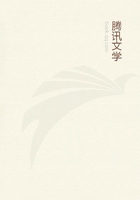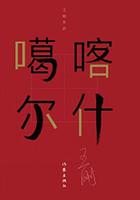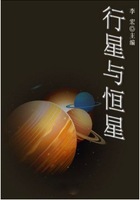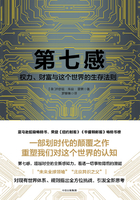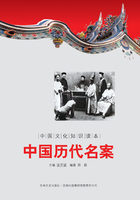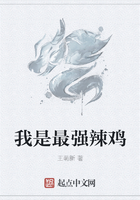Still worse was it with some of the tutors, who took us through various classical works, but never with a particle of appreciation for them as literature or philosophy. Ihave told elsewhere how my classmate Smalley fought it out with one of these. No instruction from outside lectures was provided; but in my senior year there came to New Haven John Lord and George William Curtis, the former giving a course on modern history, the latter one upon recent literature, and both arousing my earnest interest in their subjects. It was in view of these experiences that in my ``plan of organization'' I dwelt especially upon the value of non-resident professors in bringing to us fresh life from the outside, and in thus preventing a certain provincialism and woodenness which come when there are only resident professors, and these selected mainly from graduates of the institution itself.
The result of the work done by our non-resident professors more than answered my expectations. The twenty lectures of Agassiz drew large numbers of our brightest young men, gave them higher insight into various problems of natural science, and stimulated among many a zeal for special investigation. Thus resulted an enthusiasm which developed out of our student body several scholars in natural science who have since taken rank among the foremost teachers and investigators in the United States. So, too, the lectures of Lowell on early literature and of Curtis on later literature aroused great interest among students of a more literary turn; while those of Theodore Dwight on the Constitution of the United States and of Bayard Taylor upon German literature awakened a large number of active minds to the beauties of these fields. The coming of Goldwin Smith was an especial help to us. He remained longer than the others; in fact, he became for two or three years a resident professor, exercising, both in his lecture-room and out of it, a great influence upon the whole life of the university.
At a later period, the coming of George W. Greene as lecturer on American history, of Edward A. Freeman, regius professor at Oxford, as a lecturer on European history, and of James Anthony Froude in the same field, aroused new interest. Some of our experiences with the two gentlemen last named were curious. Freeman was a rough diamond--in his fits of gout very rough indeed. At some of his lectures he appeared clad in a shooting-jacket and spoke sitting, his foot swathed to mitigate his sufferings. From New Haven came a characteristic story of him. He had been invited to attend an evening gathering, after one of his lectures, at the house of one of the professors, perhaps the finest residence in the town. With the exception of himself, the gentlemen all arrived in evening dress; he appeared in a shooting-jacket. Presently two professors arrived; and one of them, glancing through the rooms, and seeing Freeman thus attired, asked the other, ``What sort of a costume do you call that?'' The answer came instantly, ``I don't know, unless it is the costume of a Saxon swineherd before the Conquest.'' In view of Freeman's studies on the Saxon and Norman periods and the famous toast of the dean of Wells, ``In honor of Professor Freeman, who has done so much to reveal to us the rude manners of our ancestors,'' the Yale professor's answer seemed much to the point.
The lectures of Froude were exceedingly interesting;but every day he began them with the words ``Ladies and gentlemen,'' in the most comical falsetto imaginable,--a sort of Lord Dundreary manner,--so that, sitting beside him, I always noticed a ripple of laughter run-ning over the whole audience, which instantly disappeared as he settled into his work. He had a way of giving color to his lectures by citing bits of humorous history. Thus it was that he threw a vivid light on the horrors of civil war in Ireland during the sixteenth and seventeenth centuries, when he gave the plea of an Irish chieftain on trial for high treason, one of the charges against him being that he had burned the Cathedral of Cashel. His plea was: ``Me lords, I niver would have burned the cathaydral but that I supposed that his grace the lord archbishop was inside.''
Speaking of the strength of the clan spirit, he told me a story of the late Duke of Argyll, as follows: At a banquet of the great clan of which the duke was chief, a splendid snuff-box belonging to one of the clansmen, having attracted attention, was passed round the long table for inspection. By and by it was missing. All attempts to trace it were in vain, and the party broke up in disgust and distress at the thought that one of their number must be a thief.
Some days afterward, the duke, putting on his dress-coat, found the box in his pocket, and immediately sent for the owner and explained the matter. ``I knew ye had it,'' said the owner. ``How did ye know it?'' said the duke. ``Saw ye tak' it.'' ``Then why did n't ye tell me?'' asked the duke. ``I thocht ye wanted it,'' was the answer.
Speaking of university life, Froude told the story of an Oxford undergraduate who, on being examined in Paley, was asked to name any instance which he had himself noticed of the goodness and forethought of the Almighty as evidenced in his works: to which the young man answered, ``The formation of the head of a bulldog. Its nose is so drawn back that it can hang on the bull and yet breathe freely; but for this, the bulldog would soon have to let go for want of breath.''
Walking one day with Froude, I spoke to him regarding his ``Nemesis of Faith,'' which I had read during my attachship at St. Petersburg, and which had been greatly objected to by various Oxford dons, one of whom is said to have burned a copy of it publicly in one of the college quadrangles. He seemed somewhat dismayed at my question, and said, in a nervous sort of way, ``That was a young man's book--a young man's folly,'' and passed rapidly to other subjects.

